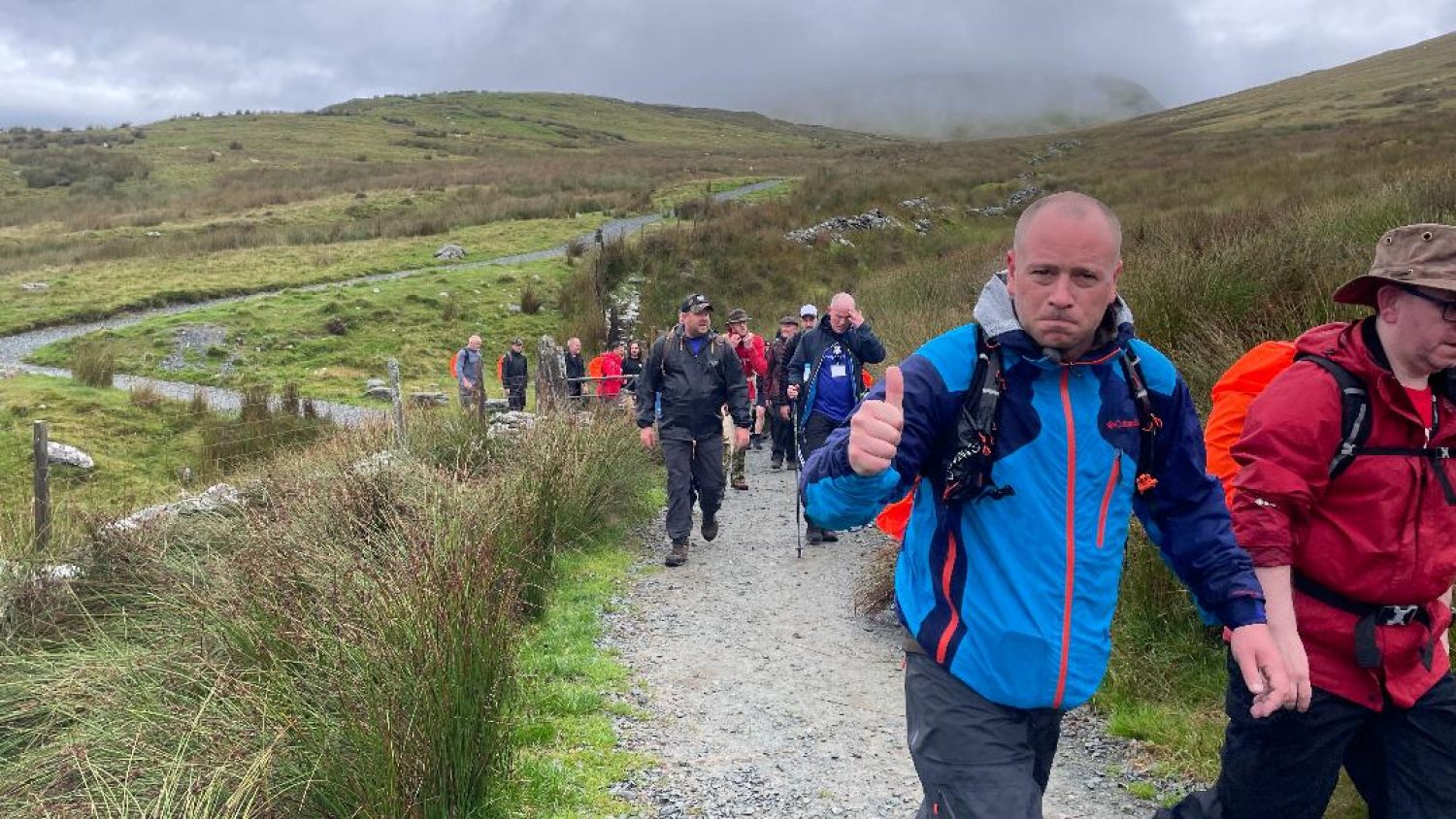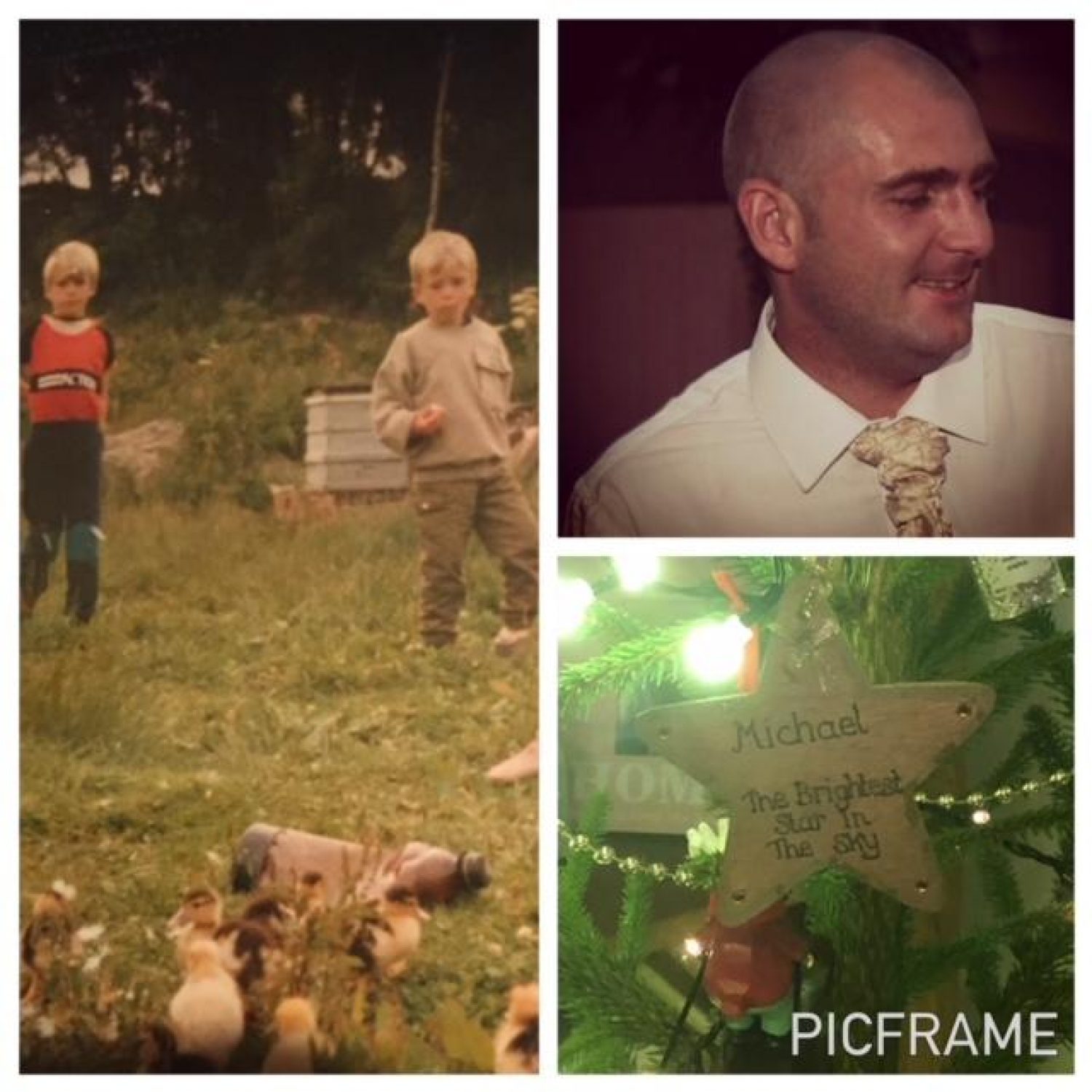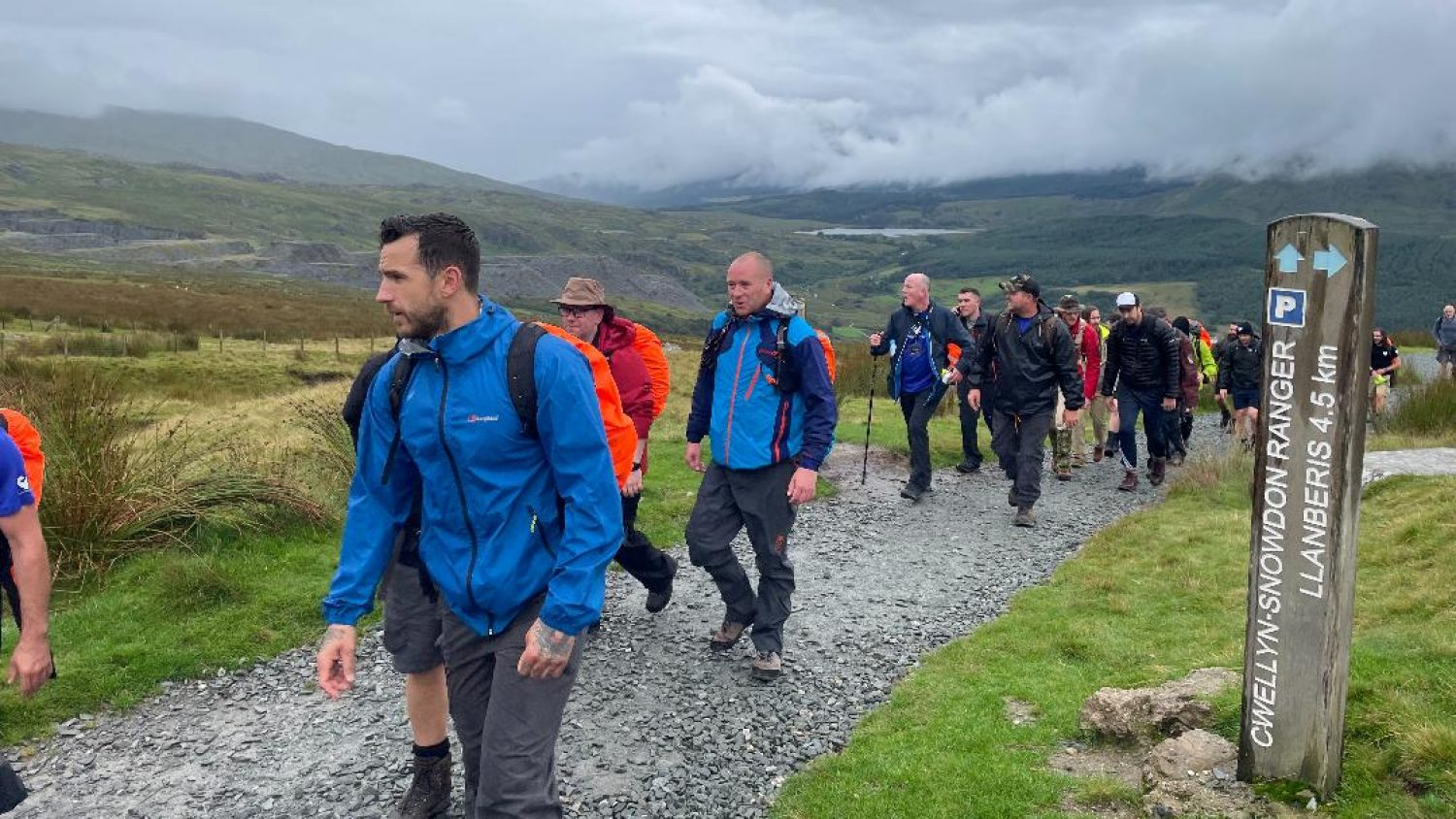Six minute read
Content Warning: Suicide
As kids growing up, Mark and Michael were cousins and best friends — a friendship that continued into adulthood.
When Michael died suddenly, Mark was knocked sideways by grief and guilt. It took an organisation called StrongMen to help him find the strength to pick himself up and keep on going.
He shares his experience with us during Grief Awareness Week (2-8 December).
Take us back to what happened on the day that Michael went missing.
Back in 2012, on 4 January, Michael went to work early in the morning, he had a cup of tea as usual, and then no one saw him after that. I got a call in the evening from his little brother asking if I’d seen or heard from Michael. I hadn’t. Later, the police called, asking the same questions.
Michael’s empty car was found at the top of a massive bridge and we went searching for him. I went round all the pubs searching for him. I smashed down fences to get to the river bank to see if I could find him.
It was midnight in the middle of winter. My dad was with me, and he had to tell me to get away from the side of the river, I wasn’t thinking about my own safety.
It would have been bad enough if they’d found him straightaway, but there were months of waiting when we couldn’t grieve properly.
His body washed up 11 months later, and we buried him on 4 January 2013 — 12 months to the day that he died. Next year will be the 10-year anniversary of his death.
Find more resources — When someone dies by suicide: how you can help
How did Michael’s death affect you?
I’ll admit it, I lost my head when Michael died. I was drinking too much — not in the house, but I could easily go out and drink ten pints. I started gambling. I threw myself into work — it’s easy to do when you have your own business — and I worked all the hours God sent as a distraction.
It was all a temporary fix, a way to focus on something else. My head was in a spin. I wasn’t thinking. I didn’t want to think. I couldn’t grasp what was going on. Because Michael and I were so close, I felt massive guilt. It’s hard to say that out loud. I still believe that if anyone could’ve stopped him, it would’ve been me.
My family were very worried about me. I’m normally a happy-go-lucky sort of person but I wasn’t myself. I was sad to the core. I went to the doctors and was just offered antidepressants. I've nothing against people who take them, but they weren’t for me.
Find sources of grief and bereavement support.
How did you hear about StrongMen?
I had watched Dan and Efrem [co-founders of StrongMen] on ‘SAS: Who Dares Wins’. I’ve always had a really close interest in the SAS — my grandad was 1st SAS in World War 2. I’ve still got his beret. I saw on instagram that they had set up StrongMen and it sounded ideal to me.
I liked the idea of going on a weekend away with blokes who had been through a similar experience to me. They had all lost someone close to them. That’s what attracted me.
I decided it was time to be honest with myself. I knew I needed to speak to someone about what had happened who wasn’t a family member. I realised that if you don’t open up and talk about your feelings, they come out in other ways.
What was it like on the StrongMen weekend?
I went on a StrongMen weekend in August, and I can honestly say I made friends for life. There’s something about being outdoors that’s very calming and I’ve always loved physical activity — kayaking, football, mountain biking, you name it.
On the Friday night, we set up camp and ate together, then climbed Snowdon the next morning. Then we went and had a few pints, some food, and chilled out round the fire. It was a massive mix of people, from early '20s to men in their '60s.
The talking just happens. There’s no pressure to discuss anything. No one asks ‘why are you here?’ All the lads here have been through bereavement. The conversations happen naturally.
As a man, you worry you might not be able to hold it together. There’s twenty other fellas there — if I fall apart will they judge me? But there was no judgement.
If I’d organised a therapy session for a certain day, I’d be building myself up to that hour all week. There would be a lot of pressure. Whereas, at the weekend, there’s more time, you can gravitate towards those you feel comfortable with, and no one will tell you what to do.
I felt so privileged that people felt comfortable talking to me, maybe talking about things they’d not spoken about with their families, or for 10, 15 years.
What’s different for me now is that I have support. I’m not isolated or lonely. There’s a network of people who I know care.
It’s not just about the weekends though. There’s also the Man2Man service. That’s where you’re trained up, then partnered with someone who you speak to on the phone. I was on the receiving end of this before going away on the weekend. I've now been trained so that I can support others.
What have you learnt from this whole experience?
It taught me a valuable lesson about life. I’m a very driven person, if I want something, I go after it. I would have done anything to get Michael back. This was the one thing I wanted, but whatever I did, I couldn’t have it.
I’ve discovered that there’s no right and wrong answers with grief. I’m comfortable with that now. I’m not going to find the answers to all my questions. I’m not going to feel 100 per cent better overnight.
"There are no right or wrong answers with grief."
I’ve got two boys aged six and twelve. My oldest lad understands now what happened with Michael. I want to be a role model to them, to let them know that it’s okay to speak about your feelings.
I was a typical bloke before. I was lucky, I’d never been depressed. When I found out that Michael was depressed and had taken his life, I couldn’t believe it. I still can’t believe that I’ll never see him again.
Before that happened, I would have thought that someone who talked about feeling depressed was weak. Now it’s the opposite, I think, wow, there’s a strong person.
Being a part of the StrongMen brotherhood is something I feel very lucky to have in my life.
Find out more about StrongMen and the services they provide, in particular Man2Man telephone peer support which is available across the country.
Read more interviews — Opening up about miscarriage and Why I chose to donate my husband’s organs after his death.
To stay in touch with all the latest news and updates from Poppy's by email, sign up here or contact us if you need help planning a funeral.


